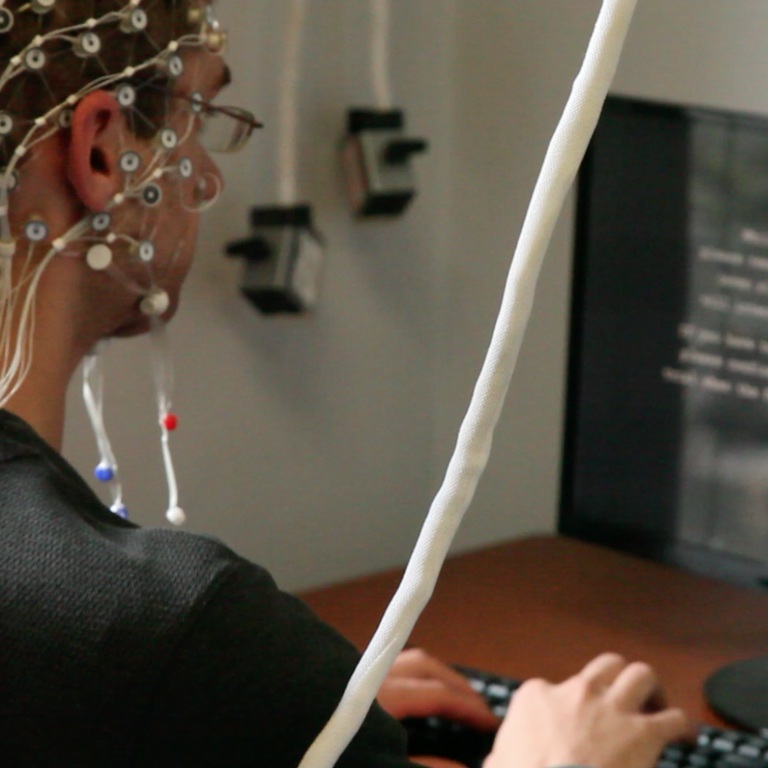Community Contribution by Marie Miguel
According to Aristotle, practical wisdom is decision-making that leads to human flourishing. When a person employs practical wisdom, they are in touch with their morals and making choices based upon those values. They use their judgment to make informed, ethical decisions.
Robert Sternberg’s ‘Balance theory of wisdom’ suggests when you use practical wisdom, you're looking at something in a light that allows you to step back from your automatic emotional response. The first step to stepping back your automated emotional response, is to be aware of your emotions in the first place (i.e., is to develop emotional insight). Practical wisdom helps us to combat black and white thinking or the tendency to catastrophize.
Emotional insight is when an individual is aware of their feelings and how they affect themselves as well as other people. It's particularly important when a person is in therapy. When someone has emotional insight, they are aware of how a conflict with other individuals can impact their life. They have an understanding of their trauma, and when you have a mental illness, this sort of wisdom can help you in a variety of therapeutic techniques. Understanding how you feel things, and why you're experiencing emotion can help you grow and evolve as a person.
Emotional insight and mental illness
Emotional insight is essential for everyone, and it's particularly helpful to understand what it means to have emotional insight when you live with a mental health condition. Living with mental illness is challenging. You might not know why you engage in a particular behavior. That's where exploring these issues in therapy can help. When you are living with anxiety, depression, bipolar disorder, Borderline Personality Disorder, or any other mental health condition, understanding what emotional insight is matters. It can help you to be in touch with your feelings and how others perceive you and how your behavior impacts others. Practical wisdom connects to emotional intelligence as it allows you to feel your emotions and to look at the reality of the situation objectively. It lets you pull apart maladaptive responses and piece together what you can do to cope better. Practical wisdom and emotional insight can aid you in the therapeutic process because it enables you to ask yourself, "Are things as bad as I think they are? Why or why not? What can I do to help myself?" "What decisions can I make to help myself and better my life?"
Emotional intelligence
Emotional intelligence means understanding how you feel and managing those emotions. You can use emotional intelligence to evaluate when it's appropriate to share your story with someone who needs to hear it. When you have a sense of your feelings, you can empathize with the people around you. People with high levels of emotional intelligence are self-aware and can gauge how their actions affect others. There are five different aspects of being emotionally intelligent. Daniel Goleman is an American psychologist who was instrumental in introducing emotional intelligence to the public. According to Goleman, these are the aspects of emotional intelligence:
- Self-awareness:Being self-aware means paying attention to how you feel at any given moment. You're aware of your emotions, and you want to understand better why you're feeling a certain way. When you comprehend the reason for your feelings, you can process them and have greater emotional insight into who you are as a person. You also know how your actions affect the people you interact with regularly. You are aware of your strengths and flaws, and you're working on bettering yourself.
- Self-regulation: Self-regulation has to do with staying in control of one's emotions. You possess the ability to regulate your emotions, and they do not rule you. You make decisions based on logic rather than emotion. Part of being able to self-regulate is knowing your morals and values, being accountable for your actions, and learning how to stay calm when things are chaotic. Life can be tumultuous, and it's crucial to maintain a sense of grounding when things get tough. You can practice self-regulation and learn to keep your cool, even when there's chaos around you.
- Motivation: A person who has motivation is dedicated to working on their goals. They have clear objectives and want to reach them. It's hard to stay motivated in the face of obstacles. How do you maintain a sense of motivation? Remember why you're dedicated to a particular goal, remember what you have achieved so far, look at the positive, and remember that it takes small steps to achieve big dreams.
- Empathy: People who have high emotional intelligence are empathetic. They care about others and can put themselves in another person's shoes. An emotionally intelligent person is aware of their feelings and can relate to the emotions of others. They care when another person is in pain or experiencing a tough life challenge. They are responsive to the feelings of others and want to provide support and help when they can. Having empathy can make other people feel supported, cared for and loved. To have compassion, you need to understand how you feel first. That way, when you see a friend or loved one suffering, you can relate it to your experience and be supportive in the best way you know how. For example, let's say that a friend of yours lost a cat. They're despondent because they have had their beloved pet for the past 15 years. You can relate and be empathetic because you remember what it's like to lose a pet. You recall when your dog passed away some years ago. Because you've been through a similar experience, you have the emotional insight to provide them with the empathy that your friend needs.
- Social skills:Those who have emotional intelligence know how to interact with others. They understand the importance of a community. Some people with emotional intelligence are great mediators. They know how to resolve conflict because they are empathetic and can see different people's points of view. Having excellent social skills means noticing the strengths of other people and praising those assets. An emotionally intelligent person may pick up on what someone is good at, and let that person know. Social skills help you navigate complex situations and can facilitate the development of a support system.
How to develop your emotional insight using practical wisdom
When you learn about yourself in therapy, one aspect of treatment is focusing on your values. You will define what's important to you and how to behave in a way that honors those morals. Another way to develop your emotional insight is to start recognizing what your triggers are and working through them. You may not be aware of what causes triggers, but when you work through these issues in therapy, your emotional insight grows. What the logical or practical mind knows may influence your emotional triggers. For example, you may value being honest. You know that honesty is a value that matters to you. When a person close to you tells a lie, you are triggered. The reason is that you hold honesty as value. You can figure out which emotions cause you the most distress and process them with a licensed mental health professional. When you're doing this kind of work in therapy, you are detaching from the feelings and logically processing them. Emotional insight and practical decision-making can grow. You're not necessarily born with emotional insight or practical wisdom; however, you can learn it.
Untangling the yarn of emotions
Sometimes emotions are complex, and you don't know how you feel until you articulate it. Therapy is an excellent place to untangle your feelings and start to understand them without judging them. There are moments that you realize you're taking on other people's feelings. If somebody feels angry at you, you might internalize that feeling. You might think you're a terrible person, but it's important to realize when other people's perceptions affect you. You can start to understand your triggers, learning why they happen, and using therapy as a place to work through them. Using practical wisdom and logical mind, you'll be able to gauge when you're internalizing unhelpful things from others and will be able to understand that they are separate from yourself. Your values are not the same as someone else's. Even if they are similar, you are two unique people.
Mindfulness and understanding your feelings
Mindfulness is a direct application of emotion regulation. Too often, as people, we want to run from our feelings. Mindfulness is something that you can practice to become more in touch with your feelings and learn about yourself as a person. You don't have to change how you feel, but you can learn from it. Sit with your emotions without trying to modify them in any way. You can gain insight into your feelings by observing them rather than running from them, which is not easy. Give yourself the chance to feel your emotions and look inward. These things are crucial to gain further emotional insight and can develop your mental wellbeing. You will discover so much about yourself when you listen to your thoughts.
Therapy and emotional insight
When you see a therapist, you can work on developing emotional insight and practical wisdom. Whether you are working with a therapist in your area, in group therapy, or with an online therapist, such as the counselors at BetterHelp, you can start working on your mental wellness. In therapy, your counselor can support you in looking inward and growing emotional insight. With that insight and the tools at your disposal, you can begin down a path to developing wisdom.
About the author: Marie Miguel is a writer and research expert. Her work focuses on health-related topics. Currently, she is contributing to the expansion and growth of the mental health resource BetterHelp. With a dedication to addressing stigmas associated with mental health, she continues to target subjects related to wellbeing.
BetterHelp is the world’s largest e-counseling platform. They offer access to licensed, trained, experienced, and accredited psychologists (PhD / PsyD), marriage and family therapists (LMFT), clinical social workers (LCSW / LMSW), and board licensed professional counselors (LPC). Their goal is to make professional counseling accessible, affordable, and convenient - so anyone who struggles with life’s challenges can get help, anytime, anywhere. To find out more, visit BetterHelp.
Visit our social media pages to discuss this topic:
Twitter, LinkedIn, YouTube, or Facebook
Contact us to provide suggestions for future discussions on wisdom!



